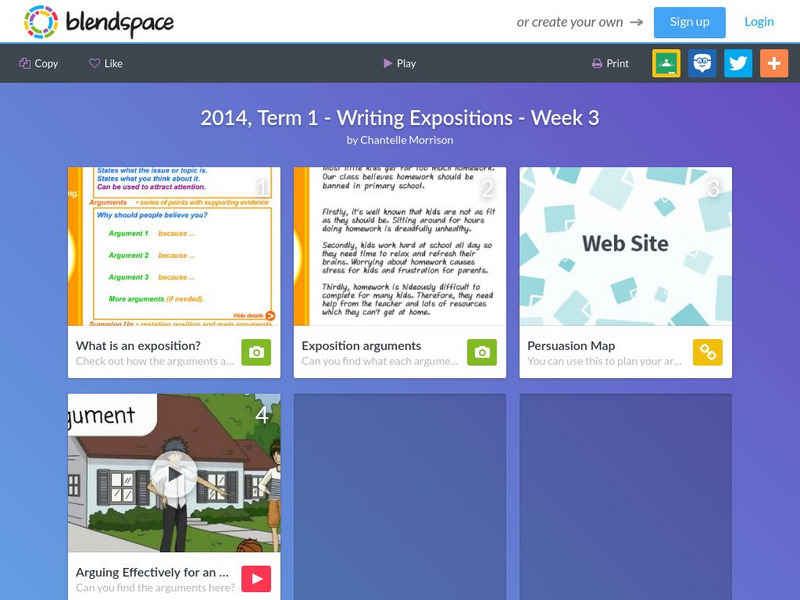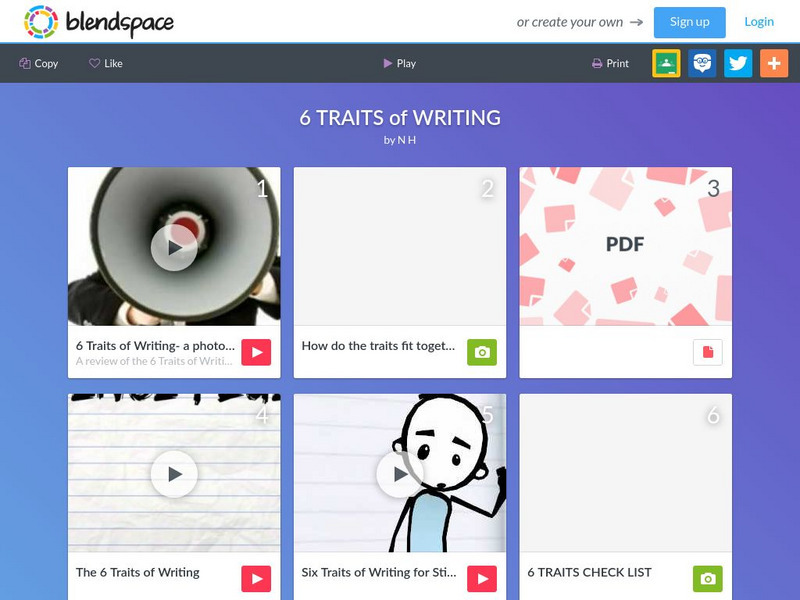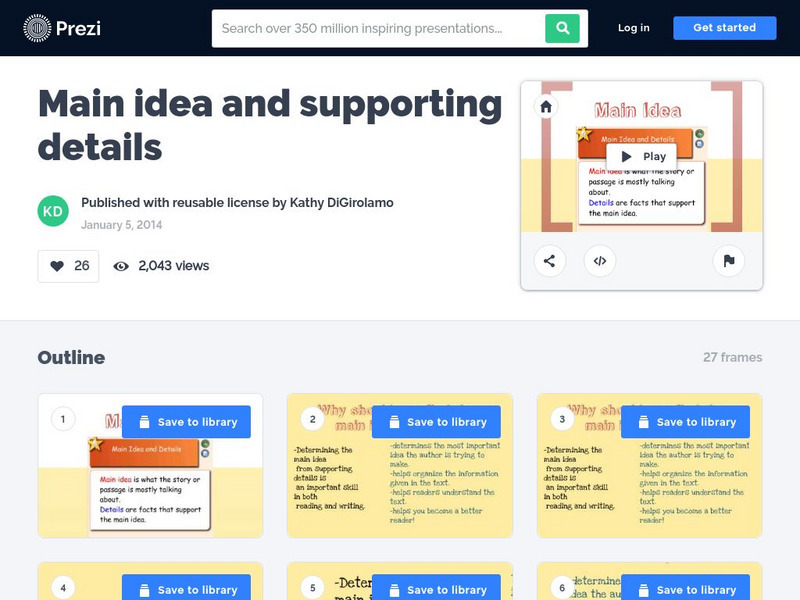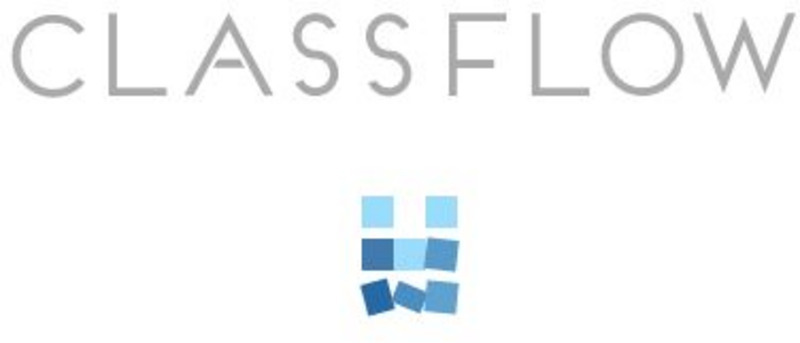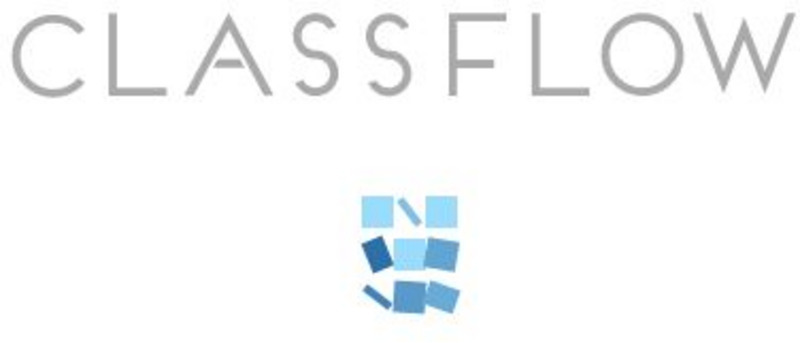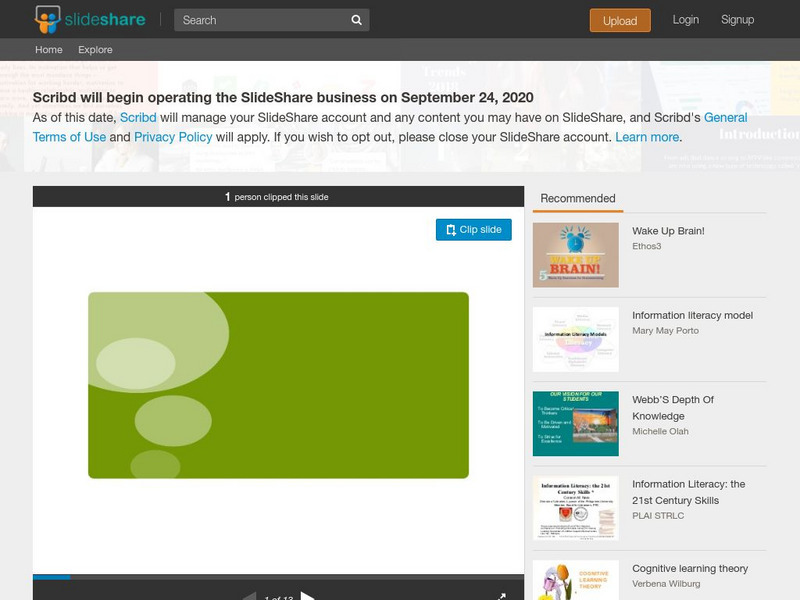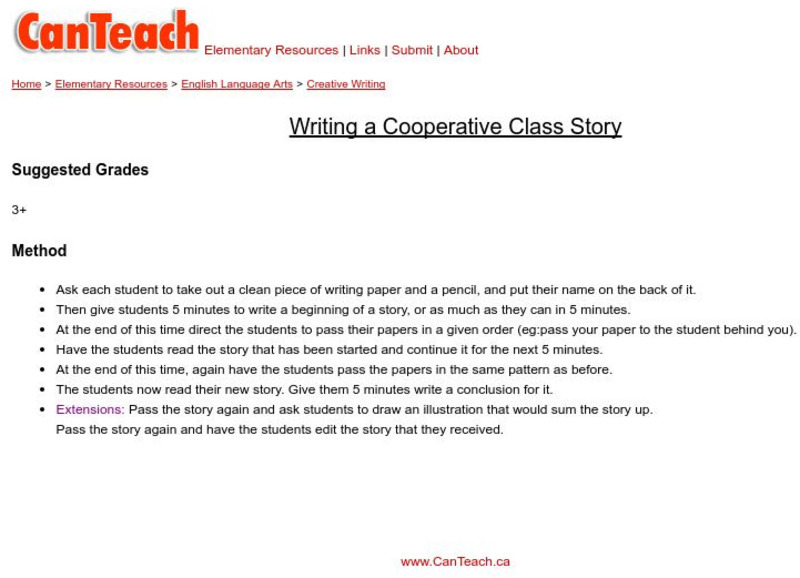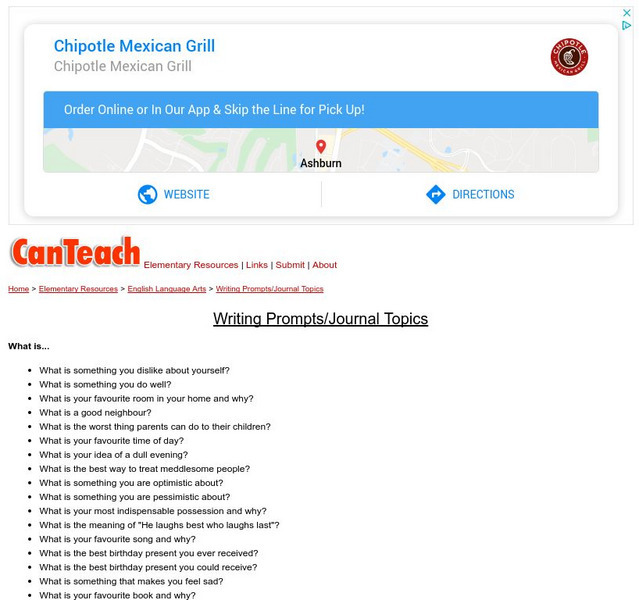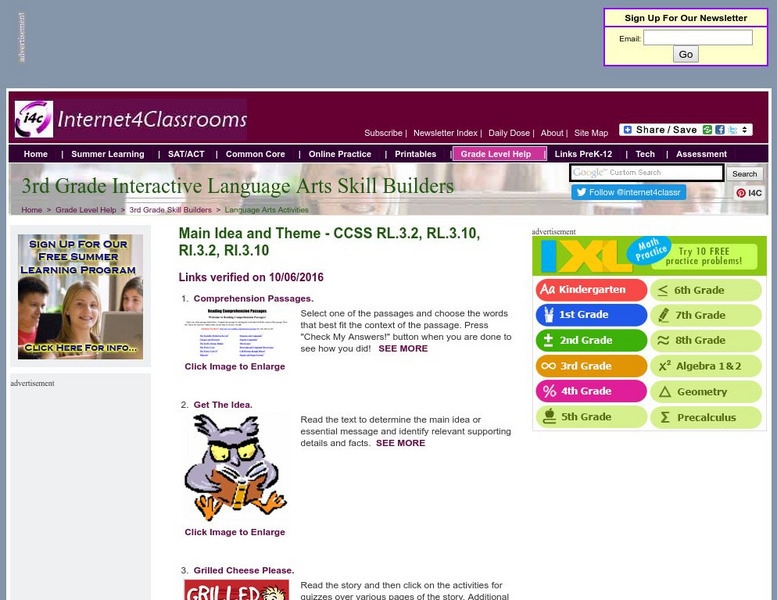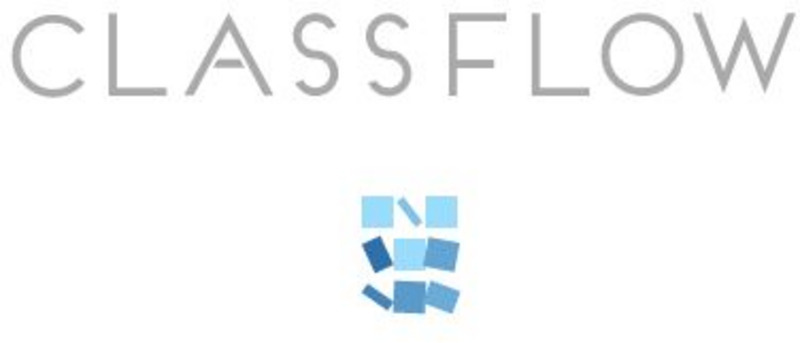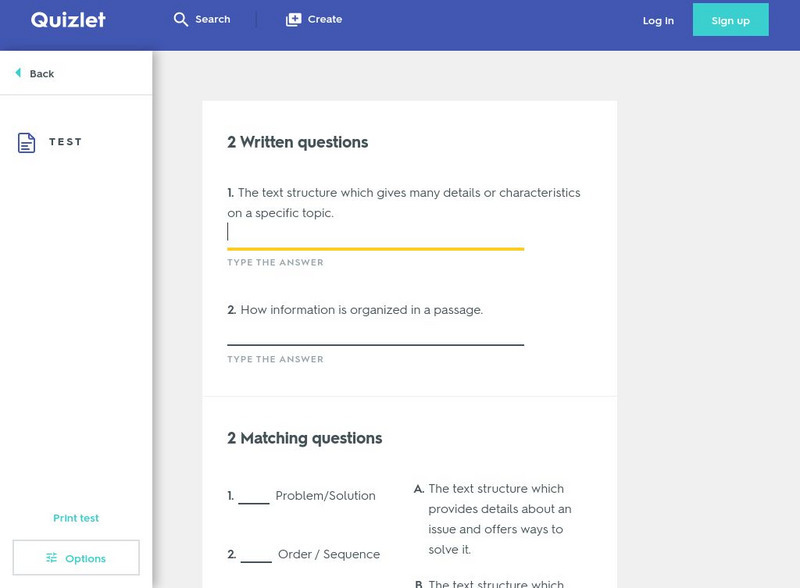TES Global
Blendspace: Persuasive Writing
Work through nine links to videos, images, and graphic organizers to learn about persuasive writing.
TES Global
Blendspace: Expository Writing
A twelve-part learning module with links to images, texts, slides, a video, and a quiz about expository writing, text structures, conjunctive adverbs, and more.
TES Global
Blendspace: 2014, Term1 Writing Expositions Week 3
A four-part learning module with links to images, a website, and a video explaining how to write an argumentative piece.
TES Global
Blendspace: Traits of Writing
A six-part learning module with links to videos, images, and a rubric about the six traits of writing: ideas, voice, organization, word choice, fluency, and conventions.
TES Global
Blendspace: Argumentative Writing
A five-part learning module with links to websites, videos, and a text about writing an argumentative text.
TES Global
Blendspace: Grammar Pre Learner Week 1 Paragraphing
A six-part learning module with links to images, videos, and websites about writing a paragraph.
TES Global
Blendspace: The Writing Process: Drafting
An eight-part learning module with websites, videos, and texts about the drafting phase of the writing process.
Other
Prezi: Main Idea and Supporting Details
Learning how to determine what is the main idea and what are the details in a story helps you become a better reader.
ClassFlow
Class Flow: Paragraph Structure
[Free Registration/Login Required] This lesson was designed to help students to analyze how individual paragraphs are structured in writing.
ClassFlow
Class Flow: Paragraphs
[Free Registration/Login Required] Students will write simple, non-chronological reports from known information (e.g., from own experience or from existing text), using notes made to organize and present ideas. Students will learn to...
ClassFlow
Class Flow: Paragraphs 3
[Free Registration/Login Required] This flipchart analyzes how individual paragraphs are structured in writing, examining comments sequenced to follow the shifting thoughts of a character. There are examples listed to justify a point and...
ClassFlow
Class Flow: Topic Sentences
[Free Registration/Login Required] This flipchart defines and gives examples of a topic sentence. Through an Activote activity students identify the topic sentence for various paragraphs.
Other
Landmark School Outreach: Finding the Main Idea
This reading strategy resource provides steps for identifying the main idea of an informational text. Example informational text paragraphs are provided, along with detailed explanations for the processes used in identifying the main...
ClassFlow
Class Flow: Writing Showing Feelings
[Free Registration/Login Required] This elementary flipchart shows how writers express feelings. Instead of telling the reader, they show the reader through descriptive writing.
ClassFlow
Class Flow: Writing With Pizazz
[Free Registration/Login Required] This flipchart helps the students with the first step in the Six Traits Writing Process-- gathering ideas. Students are encouraged to analyze writing samples and brainstorm possible personal writing...
ClassFlow
Class Flow: Writing a Report or Essay
[Free Registration/Login Required] This flipchart is intended for grades 3-5 and outlines the steps in writing a report or essay.
ClassFlow
Class Flow: Brainstorming
[Free Registration/Login Required] Several different examples of brainstorming: cluster/web, listing, circle graph, jot-chart/table. Has introduction, examples, and whole class brainstorming examples.
ClassFlow
Class Flow: Grammar Paragraph
[Free Registration/Login Required] The Objective of this flipchart is to help students to begin to organize stories into paragraphs; and to begin to use paragraphing in presentation of dialogue in stories.
Tom Richey
Slideshare: Creative Brainstorming
This slide presentation provides a background of why the process of brainstorming is important as well as elements and tools you can use to get your creative juices flowing.
Can Teach
Can Teach: Writing a Cooperative Class Story
In this lesson plan, students will write a cooperative class story, using brainstorming and editing skills. Lesson plan indicated for 3rd grade and above.
Can Teach
Can Teach: Writing Prompts and Journal Topics
This site has hundreds of writing prompts/journal topics to get students started writing. Topics like "what is" and "what if" will get students thinking about what they could write.
Other
Internet4classrooms:3rd Grade Skills Builder: Main Idea
This interactive Language Arts skill-building site provides links to interactive activities that focus on finding the main idea of a reading selection. Online lessons, games and quizzes challenges students understanding of main idea.
ClassFlow
Class Flow: Paragraphs
[Free Registration/Login Required] Students will begin to organize stories into paragraphs, and use paragraphs in presentation of dialogue in stories. Reviews what a paragraph is and uses Humpty Dumpty as an example.
Quizlet
Quizlet: 5th Grade Text Structures: Test
This interactive assessment consists of six multiple-choice questions over text structures and patterns of organization.


